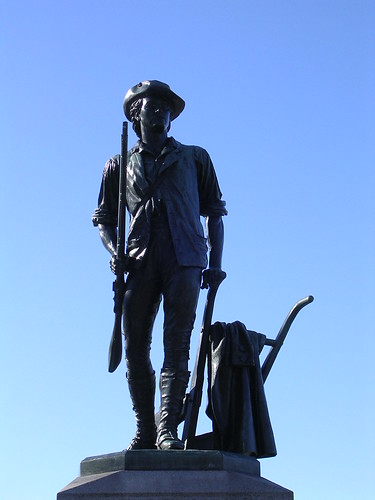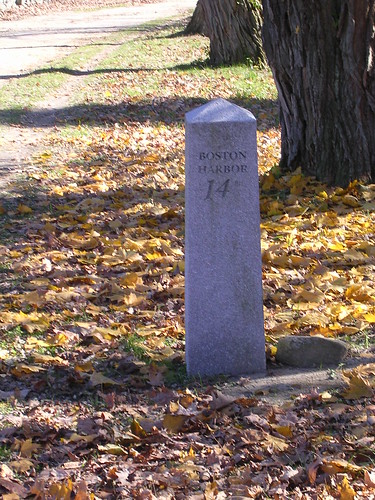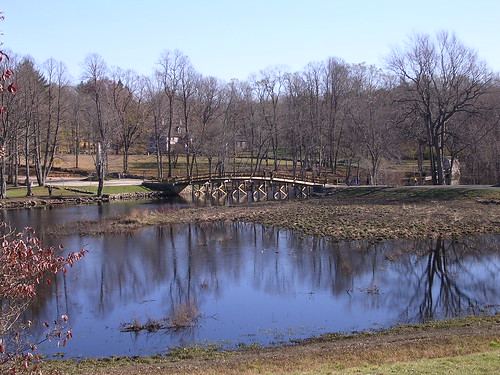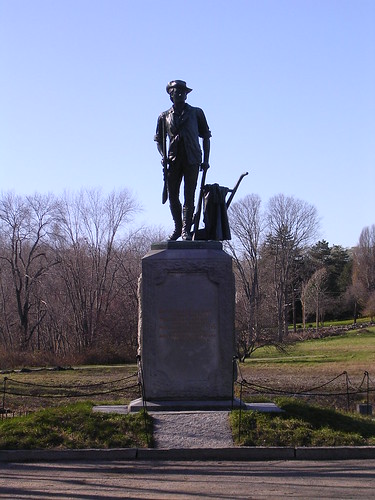"Don’t fire unless fired upon. But if they want a war let it begin here."
--Captain John Parker, commander of the militiamen at Lexington, Massachusetts, on sighting British Troops (attributed), 19 April 1775

By the rude bridge that arched the flood,
Their flag to April's breeze unfurled;
Here once the embattled farmers stood;
And fired the shot heard round the world.
The foe long since in silence slept;
Alike the conqueror silent sleeps,
And Time the ruined bridge has swept
Down the dark stream that seaward creeps.
On this green bank, by this soft stream,
We place with joy a votive stone,
That memory may their deeds redeem,
When, like our sires, our sons are gone.
O Thou who made those heroes dare
To die, and leave their children free, --
Bid Time and Nature gently spare
The shaft we raised to them and Thee.
"Concord Hymn," Ralph Waldo Emerson

The British detachment, 700 strong, that marched up to the villages of Lexington and Concord were not expecting a fight. Their officers expected the show of force would quickly cow the colonials into giving up the cannon and ammunition that the militia had removed from their armory and hidden in the hills around Boston.
They were wrong.
On the Lexington village green, they arrived to find the local militia forming. The British troops fired into the assembling militia, causing them to disperse. The British then re-formed and marched on to the armory at Concord.
At Concord, the local militias of several villages were assembling. Warned by the nighttime rides of Paul Revere and William Dawes, they assembled on the north side of the Concord River, across a small bridge and north of Concord. Most of the supplies from the Concord armory were with them.

The British force marched into Concord and burned the armory, then moved to cross the bridge and continue their expedition. Then they discovered the assembled militias awaiting them. Thinking it at first a bluff, the British tried to send some men across, when someone fired. By the time the exchanges ceased, several men on both sides had fallen to musket balls, and the Revolution had begun in earnest.

Unable to cross the bridge without risking heavy losses, and suddenly aware they were in hostile territory, the British force withdrew the long twenty miles back to Boston. Trapped by the banked and stone-fenced roads, they were peppered every step of the way by Rebel snipers, losing two hundred of their men before reaching the safety of Boston.
Within days, Boston would be encircled. The American Revolution had begun.

Minuteman National Historical Park preserves much of the old original battlesite in Concord; and in Lexington the village green still remains, surrounded by much the same buildings as it was in 1775.






